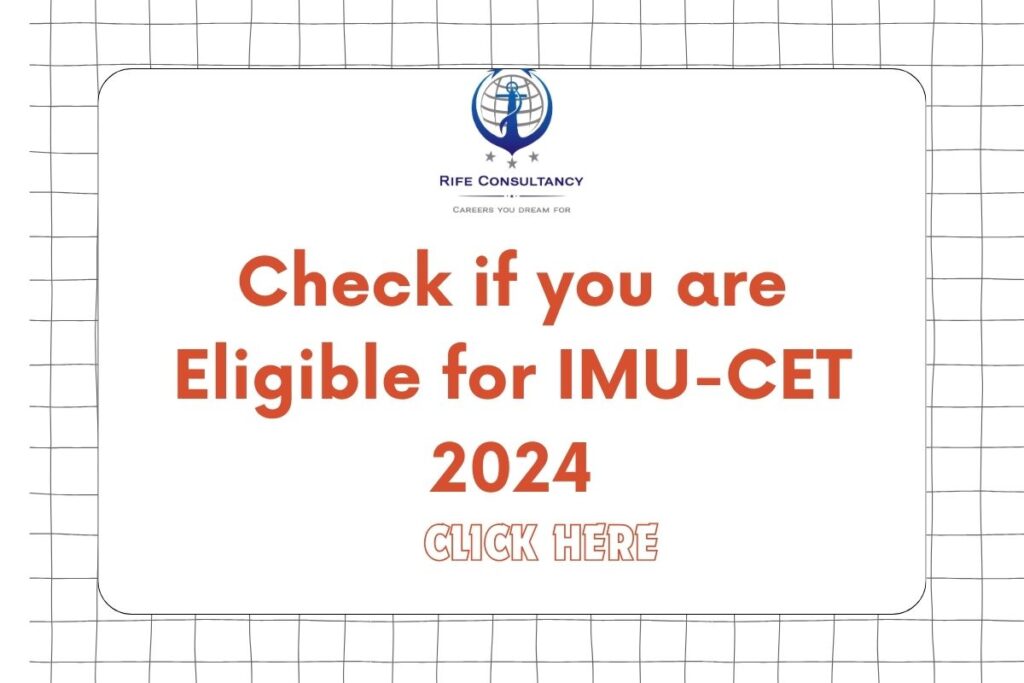
What is Merchant Navy: Career, Scope & High Salary Jobs in India
What is Merchant Navy? Many young people are drawn to a career in the Merchant Navy because of the potential to travel across the world and the charm of adventure on the high seas, along with the prospect of getting great pay packages.
Remember that Merchant Navy and Indian Navy are not the same – there’s a huge difference between the two. The Defense Navy refers to nations’ maritime military wing while the Merchant Navy offers commercial services. Merchant Navy is the backbone of a country’s international trade as well as import-export business.
To transport and distribute commodities from one country to another, Merchant Navy ships employ a large number of people. Much of the import-export trade would come to a standstill without the Merchant Navy!
So, if you are also attracted towards sea life and wish to make a career in the Merchant Navy, this blog will clear all your doubts regarding the scope of the industry, eligibility criteria, pay scale, and much more!
Let’s dive right in!
Table of Contents
A brief introduction about What is Merchant Navy
The Merchant Navy is also known as the Merchant Marines in many countries. It is the fleet of merchant vessels that are registered in a specific country. The range of vessels includes passenger ferries, container ships, tankers, small tugs, and cruise ships. It is a purely private sector dealing with the transportation of goods and passengers through ships.
The Merchant Navy sector is far more prominent as compared to other industries as the majority of the trade activities in the world are carried out via sea routes. A career in the Merchant Navy is considered to be a glamorous job, especially for the people who are bitten by the travel bug and want to roam across the globe while working.
It allows you to travel to new and exotic locations all around the world. A career in the merchant navy is not only financially rewarding but also gratifying and challenging.
Scope of Merchant Navy in India
The demand for Merchant Navy officers has been increasing and will continue to increase in the upcoming years. With the Indian economy booming, there will be great opportunities in the shipping industry in years to come.
As stated earlier, the Merchant Navy is the backbone of international trade. Thus, in India too, a large number of opportunities are available in this sector. Along with overseas shipping lines and firms, shipping companies in the government and private sector offer great job prospects and growth. This industry demands bright and talented newcomers who will be in charge of ship operation and maintenance.
Reasons to pursue a career in Merchant Navy

Below are some reasons why you should consider joining Merchant Navy:
- The most enticing aspect of this occupation is its compensation packages and pay rates.
- For people who are fascinated about leading an adventurous life, Merchant Navy can be a great career option.
- This occupation requires you to work on the ship for long months. As a result, you also get to enjoy long vacations. After completing your contract (which can be of 6-8 months), you can take a vacation of 4-5 months and then join another contract.
- Your career in the Merchant Navy will expose you to a variety of crisis situations and unexpected events. This will help you enhance your critical thinking skills and operate better under pressure.
- The salary that you earn as a merchant mariner is completely tax free if you work on a foreign-going vessel for more than 183 days.
- Onboard a ship, you will get the chance to work with people from across the world. This will give you exposure to varied cultures.
- Working in the Merchant Navy enhances the sense of adaptability and professionalism in seafarers. This also helps the individual understand and function better as a team player while learning the importance of different cultures and traditions.
Medical requirements to join Merchant Navy
In order to be eligible to work in the Merchant Navy, you need to be physically as well as medically fit. Since this is a job that requires you to carry out activities on the sea, there are certain criteria that you need to meet. While applying for any Merchant Navy course, you will have to clear the D.G. shipping approved medical test.
As per the rules given by DG shipping, every seafarer shall be subject to medical examinations, as may be applicable, namely Pre-sea medical examination, periodic medical examinations, and periodic eye tests.
In the medical test, the following things will be examined:
- Height and weight
- Skeletal System
- Ears, nose, speech, and throat
- Lymphatic and Cardiovascular system
- Respiratory, Digestive, and Genitourinary system
- Eyesight and skin
To see the physical and medical requirements in detail, check out this blog.
Merchant Navy courses available in India
1. G.P. Rating
G.P. Rating is a 6 month pre-sea training course that candidates can pursue on the basis of 10th std. Candidates who complete this course will be eligible to work as a Deck/Engine crew in Indian/Foreign shipping companies.
Eligibility Criteria:
- Qualification – 10th (minimum) or 12th Pass from a government recognized board with a minimum of 40% marks aggregate. (40% marks in English is mandatory)
- Age Limit – Between 17.5 to 25 years. For diploma or degree holders, the age limit is 27 at the time of course commencement.
2. CCMC
CCMC (Certificate Course in Maritime Catering) is a 6 month course that involves training in Food Production, Food and Beverage Service, Housekeeping, and Maritime familiarization. After completing the course, a few years of experience will allow you to serve as a specialist cook for different cuisines in Cruise Liners or join Star Hotels at shore.
Eligibility Criteria:
- Qualification – 10th (minimum) or 12th Pass from a government recognized board with a minimum of 40% marks aggregate. (40% marks in English is mandatory)
- Age Limit – Between 17.5 to 25 years (As on the date of commencement of course)
3. Diploma in Nautical Science
DNS is a one-year diploma course. Upon completion, you will receive a pre-sea completion certificate and are qualified to join a ship as a deck cadet. After completing the training, you have to appear for DGS exams, which will make you qualified to get the degree of B.Sc. in Nautical Science.
Eligibility Criteria:
- Qualification – 12th Pass with at least 60% marks in Physics, Chemistry, and Mathematics (PCM), and 50% marks in English
- Age Limit – 17.5- 25 years (As on the date of commencement of course)
4. B.Sc. in Nautical Science
B.Sc. in Nautical Science is a three-year undergraduate program. This course focuses on the fundamental, intellectual and practical device learning that’s needed to navigate and operate ships securely.
Eligibility Criteria:
- Qualification – 12th Pass with at least 60% marks in Physics, Chemistry, and Mathematics (PCM), and 50% marks in English (in both 10th & 12th)
- Age Limit: 17.5- 25 years (As on the date of commencement of course)
5. B.Tech in Marine Engineering
B.Tech in Marine Engineering is a 4-year degree course that leads to a Class IV Marine Engineer Officer Certificate of Competency. After obtaining the degree and further completing 6 months of sea service, candidates are eligible to work as a Marine Engineer on merchant navy ships all around the world.
Eligibility Criteria:
- Qualification – 12th Pass with at least 60% marks in Physics, Chemistry, and Mathematics (PCM), and 50% marks in English (in both 10th & 12th)
- Age Limit – 17.5- 25 years (As on the date of commencement of course)
6. GME
Graduate Marine Engineering (GME) is a one-year postgraduate program for students who hold a bachelor’s degree in mechanical engineering or naval architecture. This course enables you to become Marine Engineers on board Merchant Navy Vessels (Ships) anywhere in the world.
Eligibility Criteria:
- Qualification – Graduation in BE (Mechanical Engineering) or Naval Architecture with a minimum of 55% in the final year. The number of ATKT/Arrears/Repeats/Failures obtained during the entire degree program must not be more than 6.
- Age Limit – Not more than 28 years (As on the date of commencement of course)
7. ETO
ETO (Electro-Technical Officer) is a four-month pre-sea training program that focuses on providing theoretical knowledge, practical skills, safety consciousness, and efficiency. Upon completing the course, you will be eligible for 8 months of training on a ship as a trainee ETO.
Eligibility Criteria:
- Qualification – 12th Pass with at least 60% marks in Physics, Chemistry, and Mathematics (PCM), and 50% marks in English (in both 10th & 12th). Cleared a 3-year diploma with a minimum of 60% marks.
- Age Limit – Not more than 35 years (As on the date of commencement of course)
Entrance exams to clear to join Merchant Navy
Candidates have to appear for IMU-CET examinations to get admission in courses like DNS, B.Sc. in Nautical Science, and B.Tech in Marine Engineering. These exams are conducted by the Indian Maritime University every year in the month of May or June.
This exam is conducted in MCQ format and includes questions based on Mathematics, Physics, Chemistry, English, Reasoning, and General Knowledge. The duration of the exam is 3 hours, in which 200 questions need to be attempted. Each question carries one mark and there is no negative marking.
Skills required to join Merchant Navy
In order to make a career in the Merchant Navy, you need to have the following skills:
- Aptitude – The candidates should have an aptitude for mechanical, electrical, or civil engineering and should possess excellent skills in mathematics, chemistry, and physics.
- Team spirit – Candidates need to have great teamwork skills and spirit. They should also have good communication skills as the Merchant Navy requires its people to communicate with staff members at all levels.
- Planning Skills – People wanting to work in the Merchant Navy should be decisive and responsible and know how to plan out work.
- Handling emergencies – Candidates need to be calm and patient in all situations and capable of handling emergency situations.
- Communication skills – Good communication skills will enable candidates to coordinate well with team members along with making collective decisions to help each other out.
- Good with technology – Ideal candidates should be good with calculations required during navigations. They should be able to cope with the technological advancements happening in the industry.
Salary standards in Merchant Navy
The Merchant Navy offers lucrative pay packages to its sailors. High salaries are one of the most attractive advantages that people consider while joining this field. The salary package depends upon your job profile and rank. Officers get a better salary when compared to those who possess rating qualifications.
Say, for example, a candidate has completed G.P. Rating course. Then in the initial training (after completing the pre-sea training), he will work as an Ordinary Seamen and get 200-300$ (12000-18000) per month. After 9 months of sailing, the candidate gets a watchkeeping certificate and also gets promoted to Able Seamen who earns around 1000-1500$. A further candidate becomes Bosun who earns around 2000-2500$. And if the candidate holds the required qualification he can be promoted as an officer where he can earn a salary of 3000-4000$.
Below is the table showing salaries of different ranks in the Engine department and Deck department.
Job Rankings in Merchant Navy
There are three main departments in the Merchant Navy – The Deck department, the Engine department, and the Crew rating. The ship’s captain is the highest ranking that one can hold.
1. Rankings in the Deck department
- Chief Officer
- 2nd Officer
- 3rd Officer
- Deck cadet
2. Rankings in the Engine department
- Chief engineer
- 2nd engineer
- 3rd engineer
- 4th engineer
- 5th engineer
- ETO
3. Rankings for the Rating department
- Bosun (Head of the rating members)
- Fitter/Welder (renders services to both deck and engine department)
- Able-bodied seaman
- Ordinary seaman (OS)
- Trainee OS
Lifestyle in Merchant Navy
The Merchant Navy offers a lifestyle that no other industry does. Below are a few lifestyle changes that you can expect while working as a merchant mariner:
1. Paid voyages
Merchant Navy is an adventurous profession that lets you travel to different parts of the world without having to pay a single penny out of your pocket. You could get the opportunity to see exotic locations that other routine jobs in different sectors don’t offer.
2. Long excursions
In the Merchant Navy, your working periods are not the same as other private or government jobs. The time that you spend onboard depends upon the length of your contract with the shipping company. It can be anywhere around 3-8 months.
3. NRI status
Individuals who sail for 182 days or more away from India are granted the designation of NRI. This also leads to gaining tax benefits as the income of a non-resident seafarer is not taxable in India. Hence Indian seafarers can have a tax-free income in Merchant Navy.
4. Uniform and respect
Years of discipline, hard labor, dedication, and work ethics are required for a maritime professional to be worthy of wearing the coveted Merchant Navy uniform. For sailors, it is an experience, an achievement, and an attachment to an industry that makes them what they are, and helps them earn pride and dignity.
5. Enhanced professionalism
A career in the Merchant Navy allows working with people from all over the world, which improves adaptability and professionalism in seafarers. This also helps the person comprehend and perform better as a team member while understanding the significance of diverse cultures and customs.
Frequently Asked Questions
1. Is Merchant Navy a good career?
Merchant Navy is a rewarding career choice, and for those who take all of the necessary measures, it is one of the greatest career opportunities available today. It offers a lot of perks including lucrative pay packages, paid voyages across the world, tax free income, exposure to varied cultures, and much more.
2. How can I start a career in Merchant Navy?
In order to start a career in Merchant Navy, you need to pursue a course according to your existing qualifications. There are a lot of options available – you can even join Merchant Navy after 10th by opting for G.P. Rating course. For 12th PCM students, courses including DNS, B.Sc. in Nautical Science, and B.Tech in Marine Engineering are available. GME and ETO courses are also available for mechanical and electrical engineering students respectively.
3. Is JEE required for Merchant Navy?
No, JEE is not required to join a course in Merchant Navy. However, you need to appear for IMU-CET (Indian maritime university common entrance test), which is an entrance exam conducted for getting admission in UG and PG marine courses.
4. Which degree is best for Merchant Navy?
Any degree is best for Merchant Navy as long as you are enthusiastic enough to make a career in this field. The course that you can pursue depends upon your existing qualifications. If you are from science background and have completed 12th in PCM, you can apply for better courses and get better opportunities as compared to the candidates who pursue G.P. Rating after completing their 10th. However, even after G.P. Rating, candidates can grow in their career path – it will just take a few years more to gain the required expertise.
5. Can 10th pass apply for Merchant Navy?
Yes, students who have completed their 10th standard can apply for Merchant Navy. They are eligible to apply for G.P. Rating, which is a 6 months course. After completing the course, they become eligible for onboard training which qualifies them to get promoted to Motorman/Oilman, Fitter, Deck seamen, Able-Bodied Seamen, and Bosun.
6. What is the age limit for Merchant Navy?
The age limit for joining Merchant Navy differs from course to course. The age limit for joining G.P. Rating, CCMC, DNS, B.Sc. in Nautical Science, and B.Tech in Marine Engineering is 17.5 to 25 years. For GME and ETO, the age limit is not more than 28 and 35 years respectively.
Also Read:
4 Sponsorship Exams you must apply in 2023
Career Path in Merchant Navy after IMU-CET 2023
To sum up,
If you wish to make a career in the Merchant Navy and are looking for more information, feel free to contact us at Rife Consultancy. Talk to our counselors to know about your eligibility to join Merchant Navy Courses. We help you prepare for entrance exams (IMU-CET) as well as sponsorship exams conducted by shipping companies. Call now at +91 8160 370087 to know more!
Click here to join our Telegram chanel
You will get information, news, and support related to Merchant Navy.



